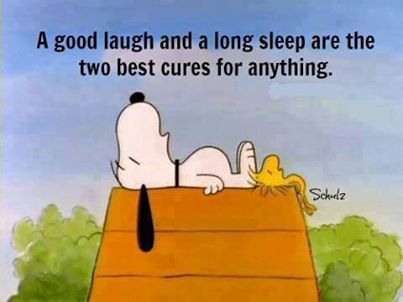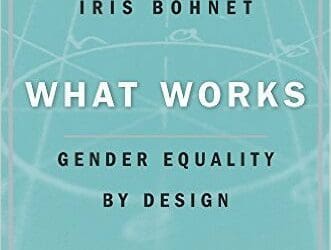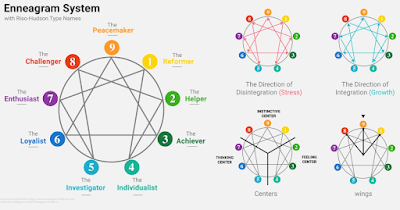I only got about five hours of sleep last night and six the night before. I need a shade over eight to maintain peak cognitive functioning. Have I sinned?
I suspect that most people are inclined to say no without careful consideration, but once we think about it, the answer might be yes, in many cases it is a sin. I want to be clear that not all sleep deprivation is sinful. There are many instances where sleep deprivation shouldn’t even be discussed in relation to sin, but there are also many cases where it probably is sinful. I would consider sleep deprivation to be sinful when 1.) it is a choice or results from poor choices, 2.) the reasons for the choice are ungodly (including reasons that seem godly on the surface), and 3.) the benefits from it do not outweigh the potential costs. Those are pretty flexible guidelines that can be applied to each individual person and situation, but ultimately, you will need to decide if and when sleep deprivation might be a sin. I merely want to relay some information for people to consider on their own.
I’ve already written on the theology of sleep and how it applies to apologetics, which might be helpful to review before we discuss whether or not sleep deprivation is a sin. I am defining sleep deprivation as getting less sleep than needed in a single night and the less sleep a person gets, the more sleep-deprived they will be. Additionally, the effects of sleep deprivation are cumulative so sleeping only five hours for two consecutive nights causes greater sleep deprivation than only sleeping for five hours for a single night.
With this basic understanding of sleep deprivation, why do I think it can be sinful? There are two main reasons: the effects of sleep deprivation and the causes of it.

Effects
When scientists study sleep deprivation, they have to deprive people of sleep This is somewhat of a problem because sleep deprivation causes cognitive impairment, which can be dangerous. To get sleep deprivation research approved by an ethics board, known as an Internal Review Board or IRB for short, scientists have to take some precautions which are costly and make research more difficult.
For example, when participants are sleep deprived, the researchers have to ensure they do not drive home or go to work directly after participating. To do this, scientists have to pay for people to get a cab to and from the research facility and physically ensure they do not drive away afterward. When I participated in a sleep deprivation study years ago, I had to give consent that I would not drive home after the study and the researchers had to walk with me outside to physically watch me get into the vehicle as a passenger. Had my wife not picked me up and dropped me off, they would have paid for me to get a cab to and from, which would have cost them about $100, which would have been in addition to the $500 I was paid to participate.
Why such precautions? Sleep deprivation impairs cognitive functioning. While it doesn’t impair us exactly like alcohol does, it is similar enough that researchers will often use blood-alcohol concentration (BAC) as a comparison.
We all recognize that drunk driving is a sin, so why don’t we call it sin to drive while sleep-deprived, especially considering sleep deprivation can easily cause cognitive impairments greater than the legal limit for BAC when driving. The bottom line is that when we are sleep deprived, we become more dangerous to ourselves and others. Driving is the obvious application, but that’s only part of it. Being sleep deprived negatively impacts us and those around us in every way.
Causes
Even if there were fewer negative side effects of sleep deprivation, I would still consider it sinful in many cases because of the reasons behind why we choose to be sleep deprived. There are valid reasons for not getting enough sleep. Life happens and sometime we just can’t sleep, our kids get sick, special events happen, etc. I don’t want to claim there’s never a good reason or create a false illusion that we always have control, but I do want to point out a couple common reasons which probably aren’t good ones.
In my case last night, I had work to get done that was due at midnight. Whether it’s work, school, ministry, hobbies, or something else, sometimes life gets busy and we need to make room for it. Cutting out a few hours of sleep every now and then probably isn’t a big deal. However, if we’re being honest with ourselves, is this usually the case?
For me, it’s rare. Usually, when I have to stay up late to get work done it’s because I procrastinated and was undisciplined in the days or weeks leading up to my late nights. I could have spent a couple hours working over the weekend or been less easily distracted during the week last week, but I wasn’t. When this happens, we’re faced with a choice with choosing the lesser of two evils. Is it better to go to bed and honor God by getting sleep but not doing quality work or is it better to honor God by getting good work done and skimping on the sleep. Every situation is different so I’m not going to pretend to have an answer for you, but I do know that this conundrum can usually be avoided if we are diligent in our work and avoid procrastination.
What about those times when we just have too much going on and cannot get it all done even when we are disciplined? In those cases, we should be asking ourselves why we have too much going on in our lives? There could be all kinds of reasons, again, many of them valid, especially in the short term, but I also suspect many of them come down to pride. We want and strive for importance and to make ourselves great. Often this is hidden as “the Lord’s work” or ministry, but it’s usually just our inflated sense of self-worth. Whatever you’re doing that has you so busy can probably stop and it will have little to no effect on the world or even an individual person. It might be that we need to scale back the extra things in our lives or even cut them out completely.
Typically what I see when people are not sleeping enough is because they’re also too busy to do other things that Christians should be prioritizing, such as reading the Bible, praying, fellowshipping with other believers, and spending quality time with their spouse and children.
Conclusion
The effects of sleep deprivation are much worse than most people realize. In fact, the research shows that people don’t consciously perceive how it negatively impacts them because we don’t have the awareness to notice or enough direct feedback mechanisms to reveal it. But just because we don’t notice doesn’t mean it’s not happening.
Because of the negative side-effects of sleep deprivation, it’s usually a sinful choice; however, it’s also suggestive of other sins in our lives. I am using this as an opportunity to repent for my recent sleep deprivation and I pray you will too. Let’s put a stop to this go-go-go mentality that is so damaging to our lives and relationships. Generally speaking, when we prioritize sleep, it gives us more time, not less. I know this seems paradoxical, but sleep allows us to work more effectively and efficiently.
Although it’s more complicated than this, we essentially need to organize our lives in such a way that allows us to get enough sleep and maintain the discipline to stick to it. For more details on how to prioritize sleep and practice good sleep habits, please read my other sleep article.



